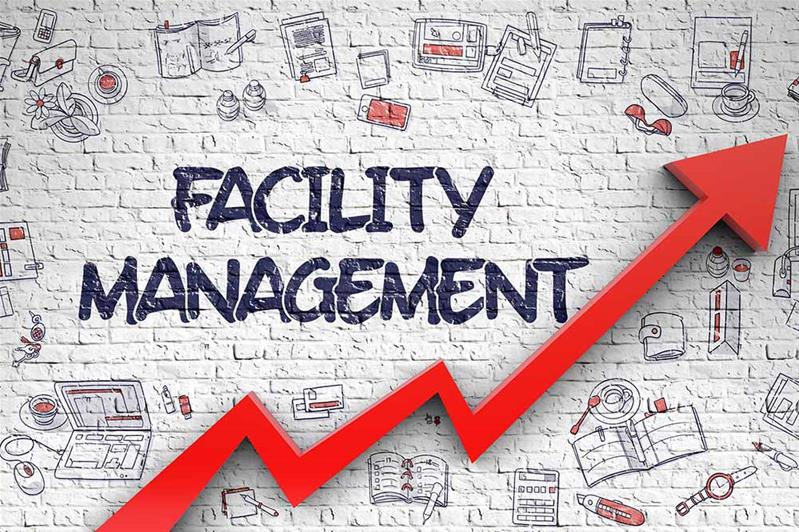Why Total Facility Management Is Essential for Contemporary Enterprises
Top Advantages of Total Facility Management for Streamlined Workflow
Total Facility Management (TFM) represents a critical approach to enhancing operational effectiveness by integrating numerous services, such as maintenance and safety, under a unified management structure. This consolidation not only reduces redundancies yet additionally leverages information analytics for informed decision-making and predictive maintenance. TFM assists in streamlined interaction among stakeholders, aligning procedures with wider business purposes. Nevertheless, the inquiry continues to be: what specific benefits can companies harness from adopting TFM, and how might these advantages change their functional landscape?
Enhanced Functional Performance
Improved functional efficiency is a main benefit of implementing total facility management (TFM) techniques. TFM encompasses an extensive approach to managing a center's resources, procedures, and infrastructure, inevitably enhancing procedures. By combining numerous services-- such as maintenance, safety and security, cleansing, and room management-- TFM boosts and lessens redundancies sychronisation among different functional features.
The assimilation of modern technology further intensifies this performance. Advanced facility management systems supply real-time information analytics, allowing facility managers to make educated choices that boost operations and resource allowance. Anticipating upkeep techniques, for instance, anticipate devices failures prior to they occur, lowering downtime and expanding property life-span.
Furthermore, TFM promotes standardized processes throughout various departments, making certain consistency and top quality in service delivery. This harmony reduces functional disturbances and promotes a more collective workplace. Consequently, employees can concentrate on their core duties, driving efficiency and enhancing overall performance.

Expense Decrease and Savings
Applying total facility management (TFM) not just enhances operational efficiency yet likewise substantially contributes to set you back reduction and financial savings. By consolidating numerous solutions under a single management framework, companies can get rid of redundancies and streamline processes, thus decreasing operational costs. TFM makes it possible for far better procurement approaches, allowing firms to bargain bulk investing in arrangements with suppliers and provider, leading to reduced rates.
Additionally, TFM emphasizes preventative upkeep, which reduces unforeseen malfunctions and expands the life-span of crucial equipment. This aggressive method not only lowers repair service prices however also improves the dependability of facilitiess, making certain continuous procedures. Additionally, power performance initiatives, frequently an essential emphasis of TFM, bring about substantial cost savings on energy costs, as facilitiess are optimized for lowered power intake.
Improved Source Management
Efficient resource management is a keystone of total facility management (TFM), enabling organizations to maximize the usage of their possessions and workforce. By carrying out TFM methods, companies can comprehensively evaluate their source allotment, making sure that every property is utilized effectively and effectively. This holistic method enables the recognition of underperforming resources and the capacity for reallocation or enhancement.
On top of that, TFM facilitates the integration of innovation for real-time tracking of resources, which assists in forecasting upkeep demands and preventing costly downtime. By leveraging information analytics, organizations can make informed decisions about source implementation, eventually enhancing productivity and lowering waste.
Furthermore, TFM promotes a culture of continual improvement, urging teams to routinely evaluate and improve their resource management practices. Total Facility Management. This positive position not just minimizes functional disturbances yet also fosters development, as staff members are equipped to recommend renovations based on their firsthand experiences with resource use
Streamlined Interaction Channels
In total facility management, streamlined interaction networks play a critical role in cultivating partnership and efficiency throughout groups. Effective interaction guarantees that all stakeholders, including facility supervisors, upkeep staff, and provider, are lined up with operational demands and business goals. By developing clear lines of communication, teams can swiftly address concerns, share updates, and execute remedies, therefore minimizing downtime and improving efficiency.
With systematized communication platforms, information is easily available, permitting for real-time updates on upkeep demands, source appropriation, and task timelines. This openness not only minimizes misunderstandings but also encourages staff members to make informed decisions swiftly. Structured interaction helps with far better control during emergencies, guaranteeing that all workers are informed and can respond immediately.

Boosted Concentrate On Core Activities
A vital benefit of total facility management is the increased concentrate on core tasks, allowing organizations to concentrate on their key company purposes - Total Facility try this site Management. By contracting out non-core functions such as maintenance, safety, and cleaning, companies can redirect their resources and power in the direction of calculated campaigns that straight add to their affordable benefit and development
Total facility management integrates various operational tasks under a solitary umbrella, cultivating effectiveness and minimizing redundancy. This consolidation not only simplifies processes yet additionally improves liability, ensuring that every element of the facility operates sympathetically without diverting attention from what genuinely matters-- core organization functions.
In addition, this approach enables employees to dedicate their time and efforts to jobs that drive advancement and boost client satisfaction, instead of getting slowed down by operational obstacles. With a reliable facility management partner handling daily operations, organizations can attain better agility, respond quickly to market changes, and maintain a sharper focus on their objective.
Ultimately, enhanced concentrate on core tasks results in enhanced overall efficiency, allowing companies to reinforce their market placement and satisfy their tactical goals much more properly. - Total Facility Management
Conclusion
In verdict, Total Facility Management dramatically enhances functional efficiency by consolidating important services and leveraging information analytics for educated decision-making. Price decreases and enhanced resource management add to general savings, while structured interaction networks foster collaboration among stakeholders.
Total Facility Management (TFM) represents a strategic method to enhancing operational performance by integrating numerous services, such as upkeep and safety, under a unified management structure.Enhanced operational effectiveness is a primary advantage of implementing total facility management (TFM) methods. Advanced facility management systems offer real-time information analytics, allowing facility managers view to make informed choices that improve operations and source allocation.Applying total facility management (TFM) not just boosts operational effectiveness yet also dramatically contributes to set you back reduction and financial savings.Reliable source management is a cornerstone of total facility management (TFM), making it possible for organizations to maximize the use of their properties and workforce.